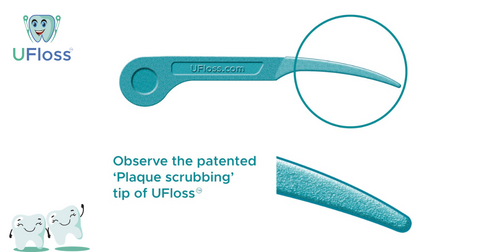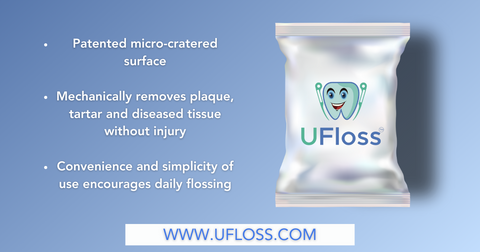Should You Floss Before or After Brushing?
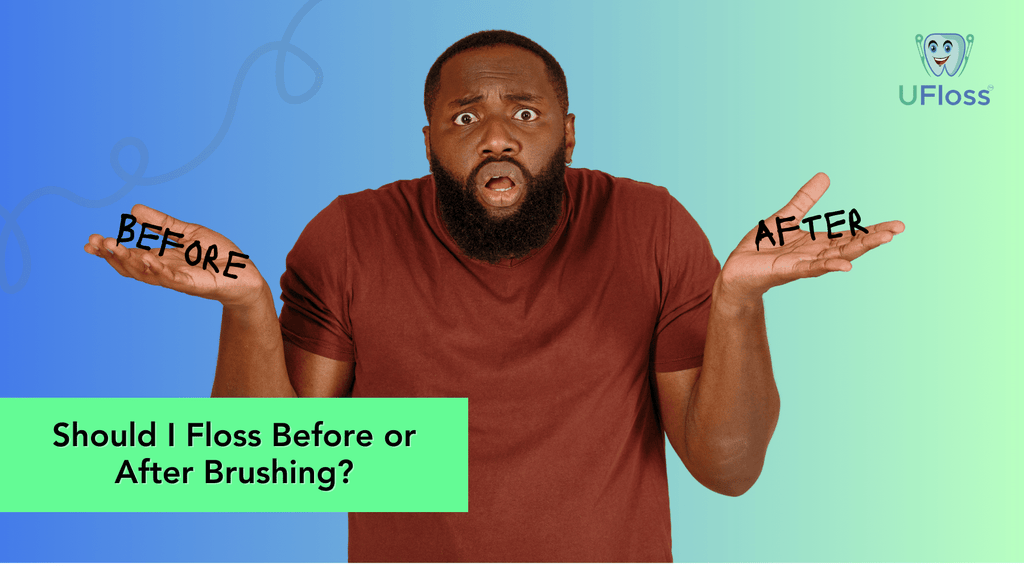
Flossing and Brushing: Which Comes First for Optimal Oral Health
When it comes to oral hygiene, we often hear the importance of brushing and flossing. Most of us are diligent about brushing and flossing our teeth (hopefully!), but may give less thought to the order in which we perform these common oral hygiene practices. Is there a specific sequence that's more effective? In this article, we'll explore the ideal approach to flossing and brushing and provide expert tips to enhance your oral health routine.
The Essential Duo: Flossing and Brushing
Maintaining good dental hygiene goes beyond merely brushing your teeth. While brushing does an excellent job of cleaning your teeth, removing dental plaque and preventing cavities, it has limitations. The bristles of a toothbrush cannot reach the narrow spaces between teeth, leaving residual plaque and food debris. This is where flossing becomes indispensable.
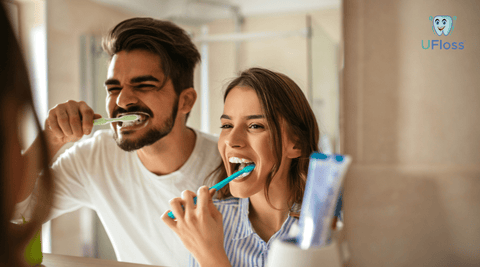
Flossing complements brushing by lifting and removing plaque and food particles from between your teeth, which a toothbrush alone cannot achieve. By incorporating both into your routine, you ensure that your mouth remains as clean as possible. But the question remains: should you floss before or after brushing?
Floss Before Brushing: The Preferred Sequence
One common sequence is to brush first and then floss. However, experts suggest that flossing before brushing is the preferred approach. Flossing before brushing allows the brushing action to remove the particles released by flossing, ensuring they are effectively eliminated from your mouth. As a result, there is less dental plaque in your mouth, and the risk of gum disease is lowered.
A small 2018 study even revealed that flossing before brushing enhances the fluoride in toothpaste's ability to protect your teeth. The fluoride works more effectively when particles are removed first.
UFloss: The BEST Floss Alternative
Among the many floss options (string floss, interdental brushes, floss picks, etc.), UFloss stands out as the top choice. UFloss essentially combines all of the floss alternatives into one highly effective dental health tool! With its patented micro-cratered surface, UFloss safely and effectively removes plaque, leaving your teeth sparkling clean and your gums strong and healthy. Its ease of use and gentle approach make it an excellent choice for people of all ages, and it's flexible design ensures a safe cleaning, each and every time.This holds especially true for those trying to floss with braces or dental bridge.
Preventing Gum Disease
Gum disease, scientifically known as periodontal disease, is a mouth infection that can lead to the destruction of the soft tissues and bones supporting your teeth. This condition arises when an excess of bacteria accumulates on the tooth's surface. Poor dental hygiene, including inadequate brushing and flossing, can contribute to gum disease. Early signs of gum disease include bad breath, swollen and tender gums, loose teeth and bleeding gums.
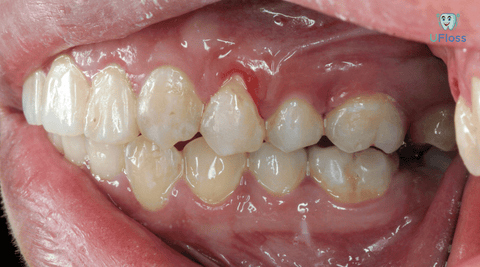
Flossing and brushing daily are vital steps in preventing gum disease, as plaque is a primary cause of this condition. Plaque typically hardens on the teeth within 24 to 36 hours. Regular flossing and subsequent brushing ensure that plaque does not solidify on your teeth.
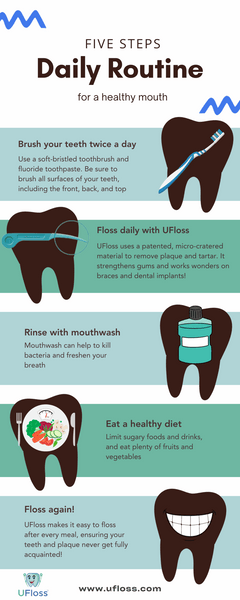
Why You Shouldn't Rinse After Brushing
After flossing and brushing, it is essential not to rinse your mouth immediately. Rinsing your mouth with water immediately after brushing washes away the fluoride, a mineral added to many dental products to strengthen teeth. This diminishes the effectiveness of the toothpaste in preventing tooth decay.
For the fluoride in toothpaste to work optimally, it should remain on your teeth for as long as possible. So, resist the urge to rinse with water right after brushing. If you're concerned about having too much toothpaste residue in your mouth, a quick swish with about one teaspoon of water followed by spitting should suffice.
If you enjoy using mouthwash for fresher breath and further cavity prevention, wait a couple of hours after brushing your teeth. For those using a fluoride mouthwash, refrain from eating or drinking for at least 30 minutes after rinsing your mouth.
Other Dental Hygiene Tips
For a comprehensive approach to keeping your teeth clean and healthy, here are some additional dental hygiene tips:
- Floss Regularly: Although it’s best to floss twice per day, ensure you floss your teeth at least once a day, whether it's in the morning or at night before bedtime. Proper flossing involves using about 12 to 18 inches of floss and wrapping both ends around your fingers. Gently move the floss up and down the sides of each tooth to remove plaque, bacteria, and food debris.
- Brush Twice a Day: Brush your teeth at least twice a day for a full two minutes each time. An electric toothbrush is an excellent choice, as it often includes a built-in timer to ensure you brush for the recommended duration. Be sure to choose a toothpaste with fluoride.
- Try Fluoride: Incorporate fluoride toothpaste and mouthwash into your routine to strengthen tooth enamel and prevent tooth decay.
- Be Gentle: When flossing, avoid being too aggressive to prevent bleeding gums. When the floss reaches your gum line, curve it against your tooth to form a C-shape.
- Don't Forget Your Tongue: Brushing your tongue not only combats bad breath but also removes bacteria, contributing to overall dental hygiene.
- See a Professional: Schedule routine dental cleanings with a dental professional at least twice a year to maintain your oral health.
Wen considering the order of flossing and brushing, flossing before brushing is recommended by experts for more effective plaque removal and fluoride utilization. Regardless of the sequence, the critical point is to consistently integrate both flossing and brushing into your daily routine. Maintaining proper dental hygiene is essential not only for preventing gum disease and cavities but also for promoting overall health.
Remember, if you don't floss, you're missing a vital aspect of oral care. Take a deeper dive into related topics like:
Or, explore all of the informative resources in our blog. Your oral health deserves the utmost attention, and proper oral care can lead to healthier teeth, gums, and a radiant smile!
If you’re ready to start your UFloss journey, head to the UFloss store for a healthier, happier smile.


